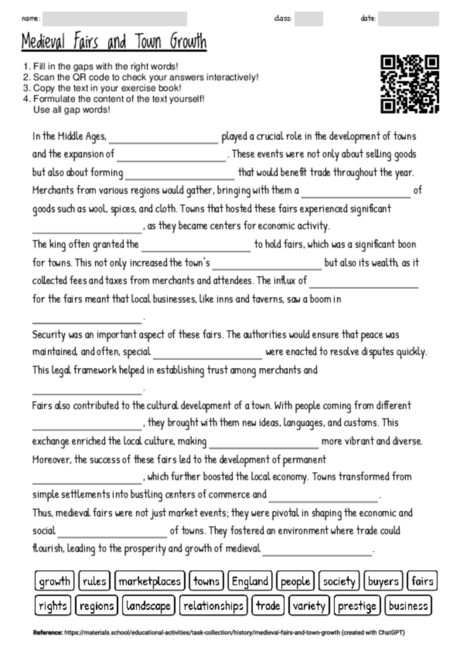Medieval Fairs and Town Growth
Cloze texts like the one created offer several advantages in teaching and learning contexts, especially when exploring historical topics such as the role of fairs in medieval England. Firstly, they engage students by requiring active participation to fill in the gaps, making the learning process more interactive and less passive. This can particularly benefit younger learners who might find traditional text-based learning monotonous.
The selection of keywords to be omitted introduces students to crucial terms and concepts related to the topic, reinforcing vocabulary and comprehension. By focusing on terms like "fairs," "trade," "king," and "wool," students are subtly guided to understand the economic and social fabric of medieval England. This approach helps in contextualizing historical events and practices within the broader narrative of societal development.
Furthermore, cloze texts encourage critical thinking. Students must not only recall facts but also understand the text structure and the significance of the missing words within that structure. This promotes a deeper engagement with the content, beyond mere memorization.
The specific content of this cloze text, detailing the economic, social, and cultural impact of fairs on medieval towns, provides a concise yet comprehensive overview of the subject matter. It can serve as an effective introductory tool in lessons focusing on medieval history, economic systems, or societal development.
In summary, the use of this cloze text in different teaching phases—from introduction to consolidation of knowledge—can enhance understanding, retention, and application of historical concepts among students. It makes learning more dynamic and fosters a more profound appreciation of the complexities of medieval life and commerce.

